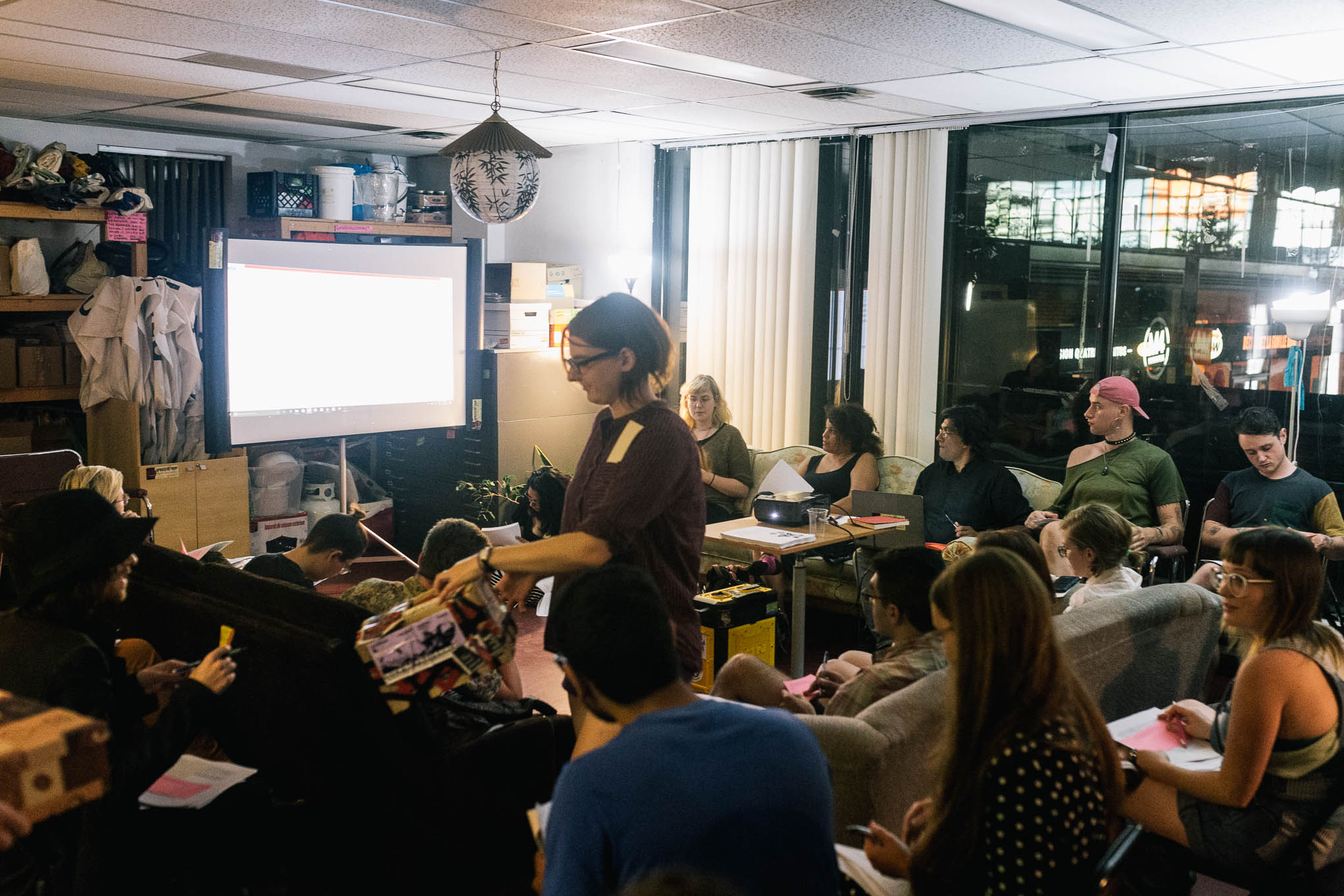Organization turns focus to the future following annual election, fee levy increases
Following the recent election of new board members and an eight-cent fee levy increase, Concordia’s chapter of the Quebec Public Interest Research Group (QPIRG) is focusing on increasing research stipends and expanding their student resources.
The grassroots organization, which has historically focused on funding research and community-based projects aligned with their progressive political views, elected 12 members to their board of directors on Sept. 27 during their annual general meeting.
Since the organization works with both the Concordia and Montreal communities, it has two separate boards: one consisting of students and the other made up of community members. Any Concordia student with a valid student ID and all community QPIRG members (non-students who have donated at least $10 to the group or who volunteer 10 hours per year) were able to vote in the election.
Eamon Toohey, who was elected to the community board of directors on Sept. 27, said the board will spend the year developing and funding “radical, grassroots social justice initiatives” and will be prioritizing marginalized voices.
“I’m really excited to work with a whole new crop of board members to support the folks working for a brighter tomorrow in the city and beyond,” Toohey said. “Especially folks at the margins fighting for Indigenous sovereignty and migrant justice. Those two fights are brutally suppressed and forgotten, but absolutely vital.”
In addition to new board members, the organization recently received an increase to their annual student fee levy. According to the group’s 2016-17 financial report, between January 2007 and November 2016, the group received 31 cents per credit per undergraduate student, with the exception of students who chose to opt out in the first weeks of each semester.
Through a referendum vote during the fall 2016 Concordia Student Union (CSU) by-elections, the QPIRG was granted an eight-cent fee levy increase. Under this new model, undergraduate students pay 39 cents per credit per semester, or $11.70 annually for a 90-credit degree. The graduate student fee levy of 50 cents per credit was unchanged.
“It was up to Concordia undergraduates to decide at the polls,” Toohey said of the referendum. “When voting closed, our fee levy was raised, allowing us to support social and environmental initiatives all over the city.”
While the group’s primary source of income is fee levy funding, it’s impossible for the QPIRG to predict how much funding that will be, as all students have the option to opt-out each semester. According to financial records from October 2016 to August 2017, the group’s total revenue for the 2016-17 fiscal year was $238,586 with approximately $220,000 coming from student fee levy funds.
The QPIRG insisted the increased funding will be put towards community-based programs and research projects. According to Hesser Garcia, a newly-elected community board member, the fee levy increase has already allowed the group to fund a $3,000 summer stipend, which they granted to Captive Minds.
According to the QPIRG’s 2016-17 annual report, Captive Minds is a Little Burgundy-based mentorship project that connects black, low-income youth with an adult mentor in the prison system. Garcia said this stipend is “the first in many to come,” now that the group has increased funding.
“We were also able to provide better support for our alternative agenda, School Schmool, and our alternative library,” Garcia said. School Schmool is a free student planner that features articles and resources, including food banks and low-cost mental health services in the Montreal area. The alternative library, in QPIRG Concordia’s office at 1500 de Maisonneuve Blvd., offers books, magazines and audio-visual media focused on environmental and social justice issues.
In total, the QPIRG invested $20,000 in community and campus projects in 2016-2017. Several board members said they are hopeful the increased fee levy will allow them to expand funding for these programs even further in the coming year.
Photo by Kirubel Mehari




